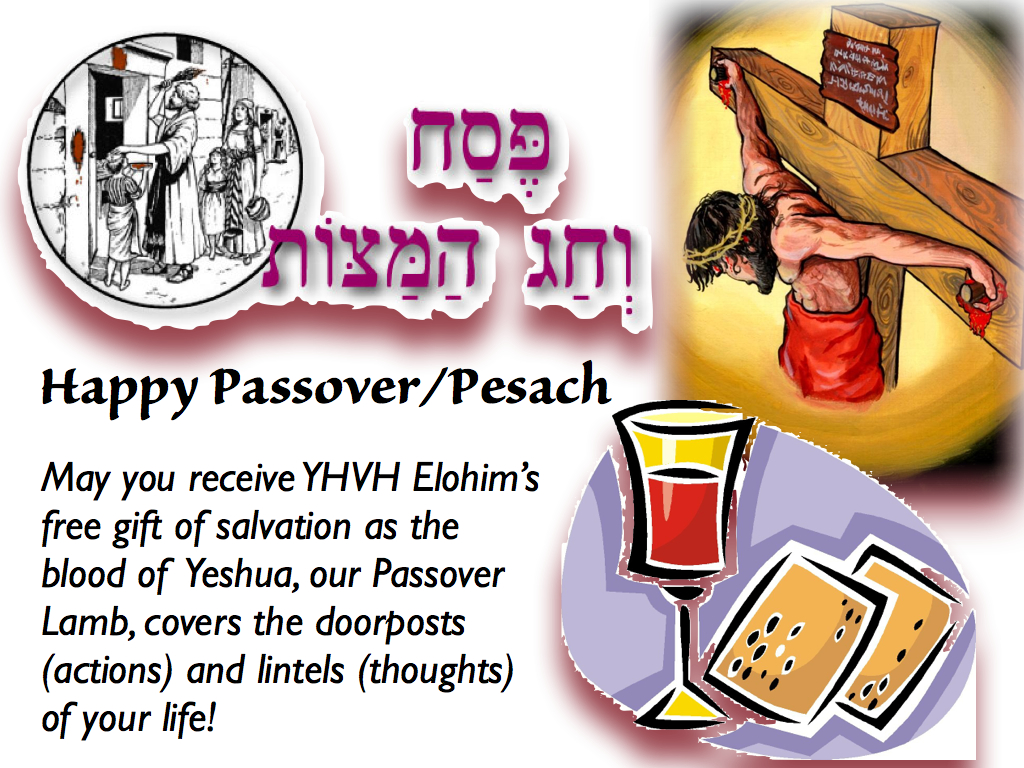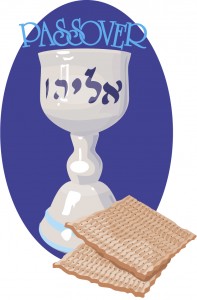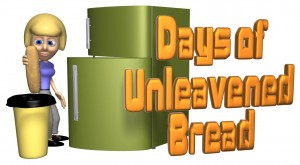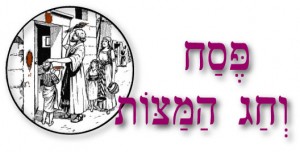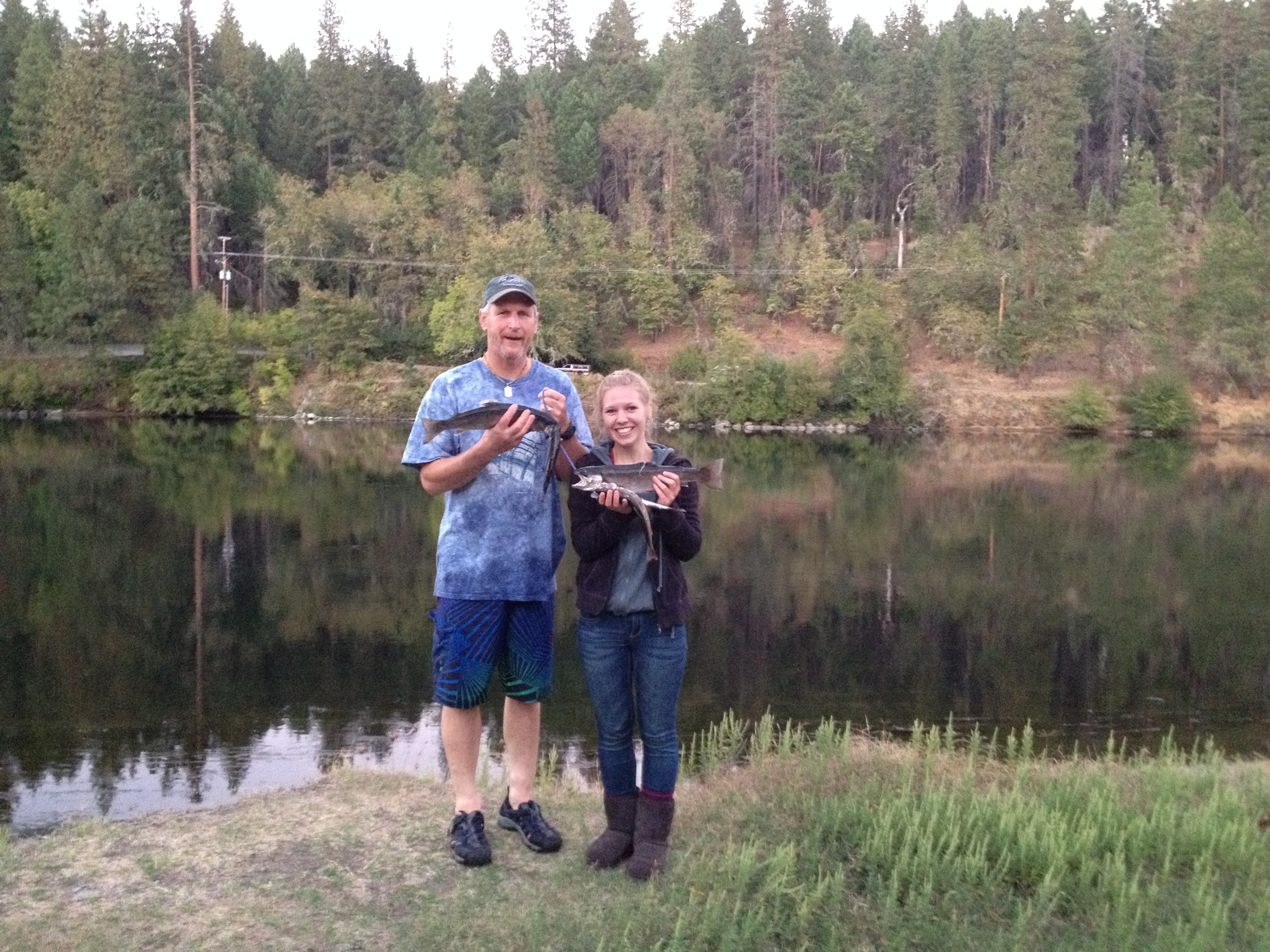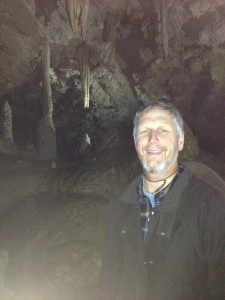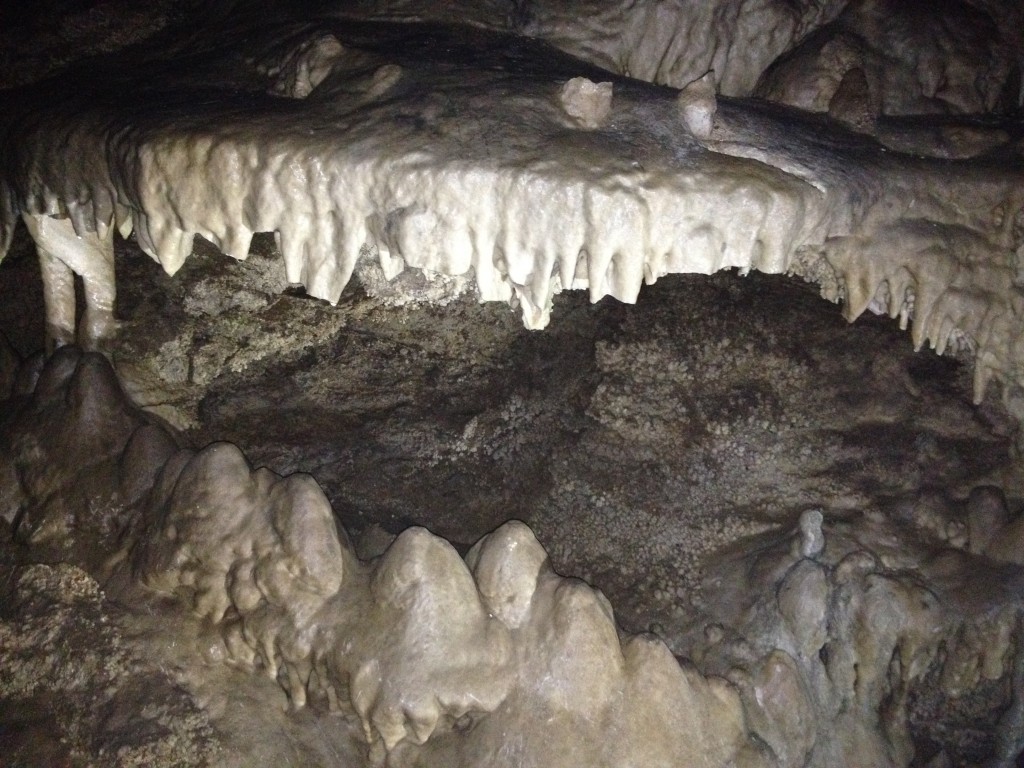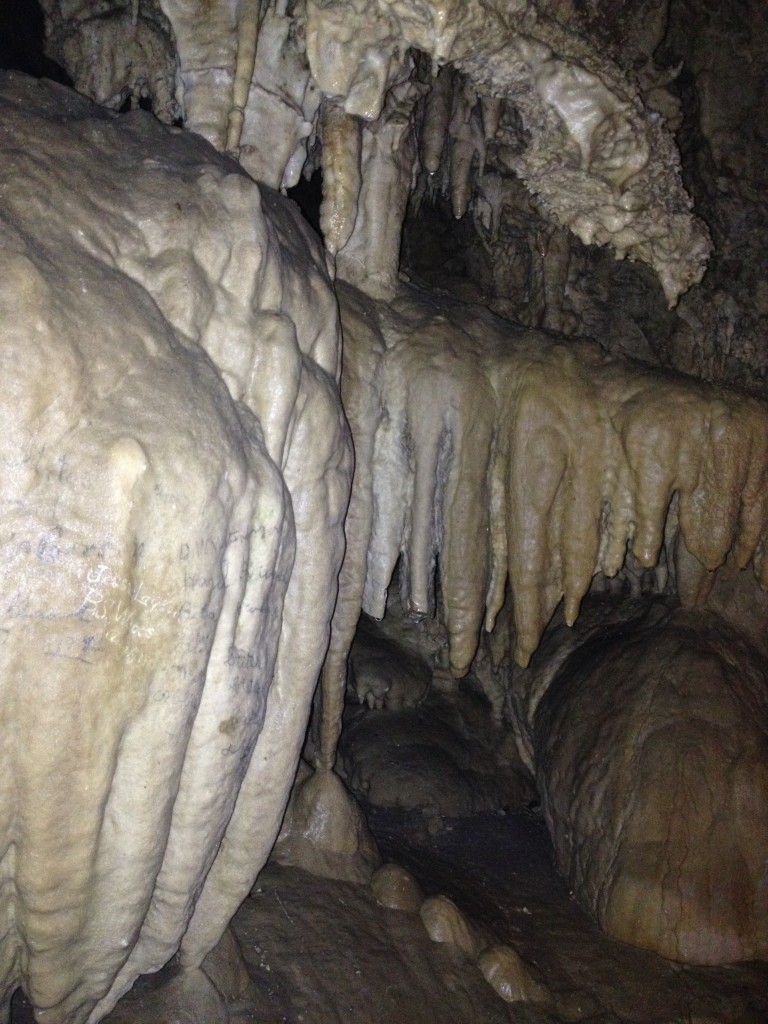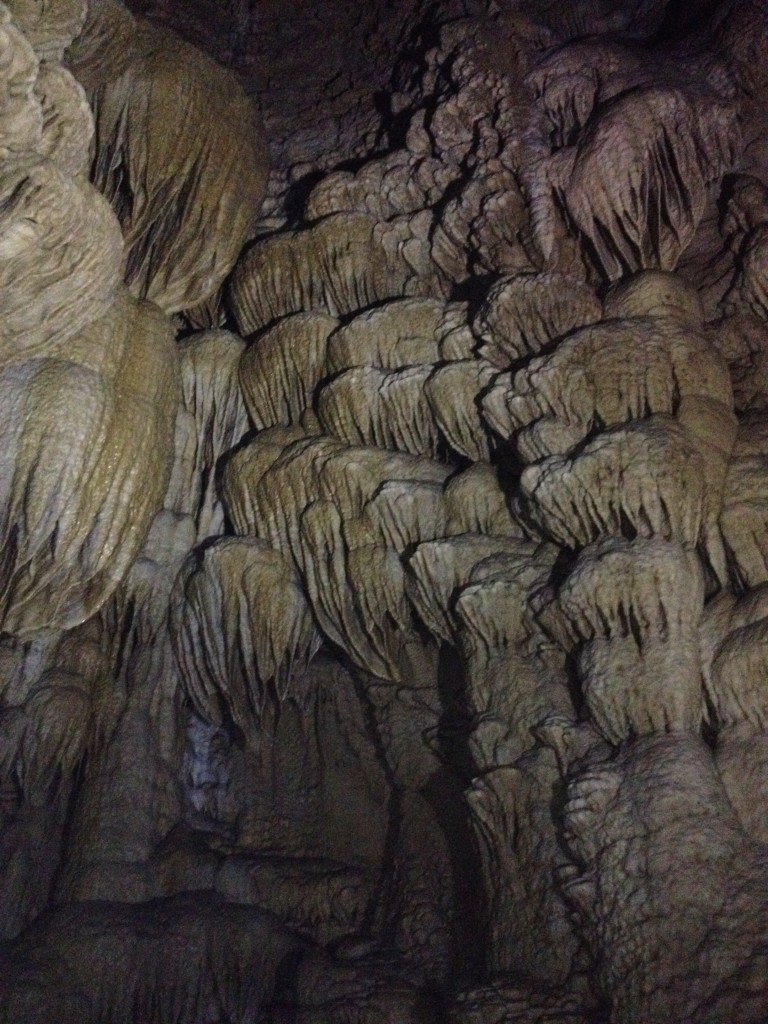Category Archives: Feasts
Free Passover and Feast of Unleavened Bread Resources
I invite you to take a look at the Hoshana Rabbah Passover page on our website at http://www.hoshanarabbah.org/pesach.html.
There you will find teachings on what Passover and the Feast of Unleavened Bread are and how to celebrate them.
If you’re not sure when the biblical feasts are, then go to our calendar page for the exact dates: http://www.hoshanarabbah.org/calendars.html
Video: Why Celebrate Passover? The Seder Explained
This video explains the relevance of the ancient Passover ritual to the redeemed believer in Yesua of the the 21st century, and why celebrating Passover brings a special blessing. A free downloadable study guide for this video is available at http://hoshanarabbah.org/blog/2013/03/12/the-passover-and-the-seder/.
When do we celebrate Passover?
Passover is just around the corner — in fact, on Saturday, April 4. We’ll be starting our Passover seder at about 6 PM on Saturday.
There is some confusion about when to celebrate the Passover, which is why I wrote the following short article. Natan
Passover occurs on the fourteenth day of the first month at twilight (Lev 23:5; Num 9:3, 5, 11). Twilight is the Hebrew word erev meaning “evening, night, sunset” according to all the main Hebrew lexicons. The root word for erev is arab meaning “to become evening, grow dark or to spend the evening, do at evening.”
Which twilight time did the Israelites keep Passover? The twilight of the thirteenth day going into the fourteenth day, or the twilight of the fourteenth day going into the fifteenth day? Let’s examine the Scriptures for the answer.
YHVH commanded the Israelites to kill the Passover lamb at twilight (Exod 12:6) and then to put its blood on their doorposts (Exod 12:7). After that, they were to roast and eat the lamb in that same evening (Exod 12:8). The word evening in Hebrew is layil meaning “night as opposed to day.” They were to eat the lamb that evening “with a belt on your waist, your sandals on your feet, and your staff in your hand…in haste” (Exod 12:11). This was the same night that Elohim struck all the firstborn of Egypt, but passed over all the houses of the Israelites that had blood on the doorposts (Exod 12:12–14).
One thing is certain. Passover occurs on the fourteenth day of the first month of the Continue reading
New Video: Sukkot NW 2014 Highlight
Well, I finally got this project completed. Had to go through hours of film footage and scads of photos, and then all the editing, adding titles, sound effects and music. Here it is:
This fun video presents highlights from Hoshana Rabbah’s Sukkot Northwest 2014 eight day long Feast of Tabernacles celebration on the Rogue River near Grants Pass in SW Oregon, USA.
We’re happy to announce that we’ll be hosting Sukkot NW 2015 in the same spot again this year, except this year we’ve reserved the entire campground for us —— exclusive use. Only redeemed Israelites (no foul-mouthed, racist, drunken heathens outsiders to ruin our righteous fun in YHVH Elohim!). Consider joining us this year! Stay tuned for details on this blog and at SukkotNW.org.
Wish You Were There! Sukkot NW 2014
How can I succinctly and honestly describe Sukkot NW on the Rogue River near Grants Pass, Oregon without resorting to sugary religious hyperbole, cliches and exaggerations that border on bearing false witness? Let me try.
The setting of the gently rolling slopes of the Griffen Park Campground nestled among the oak, ponderosa pine and Douglas fir trees leading down to a large grassy meadow along the sand and river rock-covered beach interspersed with clumps of willow trees along the banks of the still waters and mirror-like Rogue River set the tone for this year’s Sukkot. It was peaceful and sweet. When you think rogue, you think rough and fiendish, and when you think Rogue River, turbulence and choppy, if not dangerous waters comes to mind. That wasn’t the case here.
In a world increasingly full of turmoil and danger, YHVH chose to set his people down in a campground where the waters of the Rogue River were glassy smooth, though still moving rapidly on their way to the sea. It was as if he was telling us that if we just trust him during the troubled times of the last days, he will lead us to the place of shalom and still waters although the world may be falling apart all around us. This is what we experienced when for eight days during the Feast of Tabernacles we left the Babylon of this world to meet with him where he chose to place his name.
He chose this campground — we didn’t. We intended to rendezvous at another campground down river, but when the wells ran dry there due to a severe regional drought, we were forced at the last minute to relocate to Griffen Park where the drinking water was sweet, pure and plentiful. It’s again as if he was telling us that even in the desert wilderness where the physical and spiritual waters will run dry elsewhere, he will move his people to a place of abundant provision if they will but trust and follow him.
For all of the eight days except the very beginning and end, YHVH’s people had the entire campground to themselves. Before each meeting at the nearby picnic shelter, the sound of the shofar radiated out calling the Israel of Elohim to gather before the Creator to sing his praises, to worship him, and to hear his word expounded by Spirit-led teachers. Thanks to modern technology, the praise and worship music as well as the instructive messages of the Spirit-led teachers was amplified and could literally be heard throughout the entire campground. In my 48 Sukkots, this was the first time that I had experienced anything quite like this. It was a Hebrew encampment with few if any outsiders — a true and unmitigated foretaste of YHVH’s kingdom on earth of which the Feast of Tabernacles is to be a prophetic picture — a time when the glory of YHVH will cover the earth as the waters cover the sea, and when the Torah-Word of Elohim will go forth over the whole earth from the epicenter of Jerusalem.
Representatives from all three American West Coast states (Washington, Oregon and California) were present to celebrate the feast. One couple came all the way from northern Washington just below the Canadian border and another couple migrated north from southern California to be with us. The rest of us came from various points in between. The folks ranged in age from newborn sucklings to some elders in their mid-70s. It was a constant source of joy to see the youngsters (both teens and preteens) running, playing ball and capture the flag and other games on the grassy meadow overlooking the river.
At night, numerous campfires were lit at various camp sites, and one could walk around the campground and visit folks talking and laughing at the different camps. On several occasions, we had a community campfire and sukkah party. The highlight our annual erev-Shabbat kosher shared-dish meal on picnic tables under the stars was we welcomed in the Shabbat with music, the barachah, liturgy and other festivities.
Mid-week, the warm summer-like temperatures and bright blue sky gave way to some serious rain for a parts of a couple of days. These Israelites rose to the challenge without murmuring and helped each other to baton down the hatches of their tents and all survived heaven’s outpouring warm and dry. Several folks in travel trailers extended their right hand of fellowship by exhibiting the gift of hospitality and sharing their spare beds with those who weren’t accustomed to the rigors of camping in tents. Pretty soon the rain showers cleared out, and by the end of the week we were back to sun and clear skies. We were blessed to be able to put our tents and sukkahs away dry!
Four teaching elders from all three states presented 13 Bible-based messages encouraging YHVH’s people to embrace their Torah heritage as the redeemed Israelite people of YHVH Elohim and to go deeper and higher in their spiritual walk following Yeshua the Messiah. Some of the messages were presented in gentle and quiet tones, while others were spicy and provocative. Several messages were interactive with participation from the congregation.
For several people, this was their first Feast of Tabernacles. For others, this is something they have been doing for years or even decades. For many people, Sukkot is the high point of the year, and they make plans for it all year long. Several folks expressed that they couldn’t wait to get home and tell their friends about it, so they can bring them to the Feast of Tabernacles next year. Several spiritual leaders expressed that this year’s Sukkot encouraged them to go home and become more proactive about reaching out to those around them by establishing local fellowships.
There are probably some things I’m forgetting to mention about this year’s Sukkot in southern Oregon on the Rogue River, but these are the words YHVH’s Spirit as given me to say thus far, and so I will stop for now.
I took a lot of video footage of this year’s Sukkot highlights and will be putting together a montage of those highlights once I get it all edited. So stay tuned for that.
By the way, several of us went fishing for steelhead in the river flowing next to the camp and caught some nice fish, which we cooked over a wood fire and shared with others. Below is a picture of my youngest daughter Kaeli and myself. She caught the largest fish — a 19 inch steelhead trout. Mine was only 17 inches —and I’m not the least disappointed with that! Kaili also caught a couple of 12 inch rainbow trouts. Go Kaeli!
A bunch of us went to the Oregon Caves National Monument. Below, I’ve posted several snapshots from that excursion.
Thanks for reading, and maybe you can join us next year for Sukkot NW 2015!

